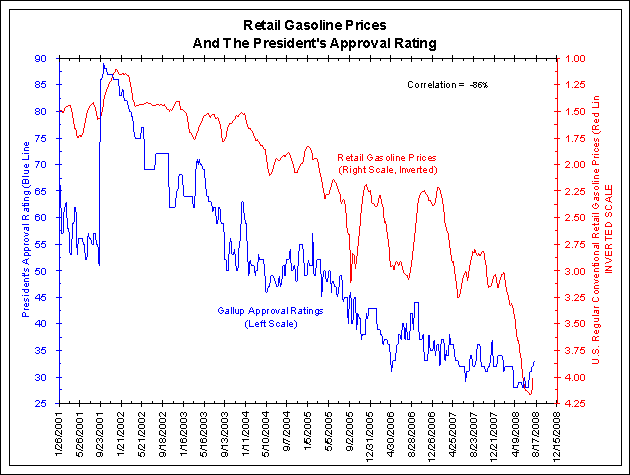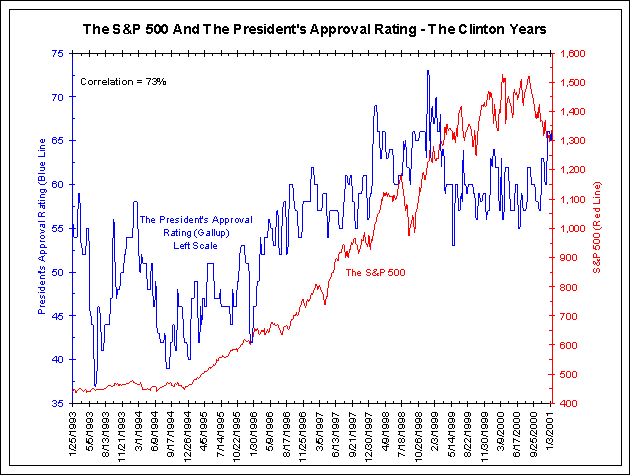-
Seeking Alpha (Blog) – Bush Approval Rating and Oil: Interesting Correlation
Gallup.com’s most recent report on President Bush’s approval rating highlighted that it had been inching higher since the lows seen in late June. While still extremely low at 33%, it’s 5 points higher than the 28% approval rating seen on June 19th. Below we highlight a chart of Bush’s approval rating since he took office in early 2001 versus the inverse price of oil. As shown, the two track each other almost perfectly. As oil prices rose to a record high in June, Bush’s approval rating hit a record low. Is it any wonder that Bush has seen a bounce with oil now $35 off its highs?
Comment When people are asked a general question such as “Do you approve of the president?”, the answer will normally hinge upon whatever key economic or political issues exist at that time. What influences a person’s opinion of one president might not invoke the same response 4 or 8 years later during a different president’s tenure in a different socioeconomic landscape.
Bush’s approval rating during his presidency has had a -86% correlation with crude oil prices. As prices at the pump have skyrocketed (falling red line), Bush’s approval rating suffered (blue line). As gas prices have begun to fall since mid-July (rising red line), his approval ratings have risen.

<Click on chart for larger image>
However, during Clinton’s presidency the stock market was much more an issue than gas prices. It should come as no surprise that his approval rating was highly correlated to the S&P 500 (73%, as shown below) while having nearly no correlation to gas prices (13%).

<Click on chart for larger image>
After looking at the charts above, it is important to remember that correlation does not imply causation. People will simply respond to a vague survey by thinking about whatever issue is important to them at the time. This does not mean Bush’s approval rating would necessarily go higher if prices at the pump continue to fall. We took a more detailed look at these approval ratings and other surveys in a May 2006 Special Report.
